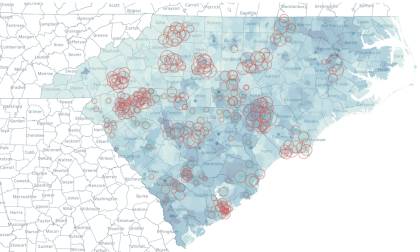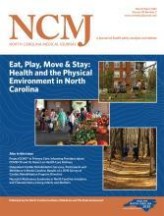Challenge
Our nation suffers staggeringly high and increasing rates of obesity and chronic diseases, compounded by racial and socioeconomic inequities. There is growing awareness that a person’s behavior and social determinants of health — conditions in their environment that affect well-being — have a more significant impact on overall health than clinical care.
Recent studies estimate that social determinants can be responsible for up to 80 percent of a health outcome. As the Kaiser Family Foundation noted in recent research: “…social factors, including education, racial segregation, social supports, and poverty accounted for over a third of total deaths in the United States in a year.”
Today, your zip code is a significant indicator of infant mortality and life expectancy. One in five children lacks adequate access to food, often leading to significant health and mental health problems.





